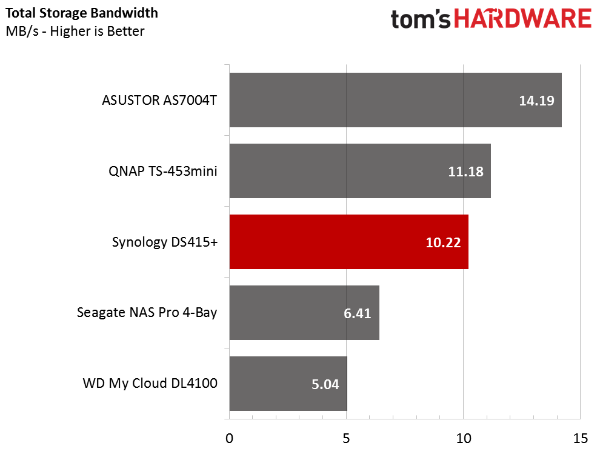Synology DS415+ NAS Review
The Synology DS415+ takes us back to simpler times when storage products focused on storage and features were designed for business users.
Why you can trust Tom's Hardware
SMB, iSCSI & Standard Server Workloads
SMB/CIFS Workloads
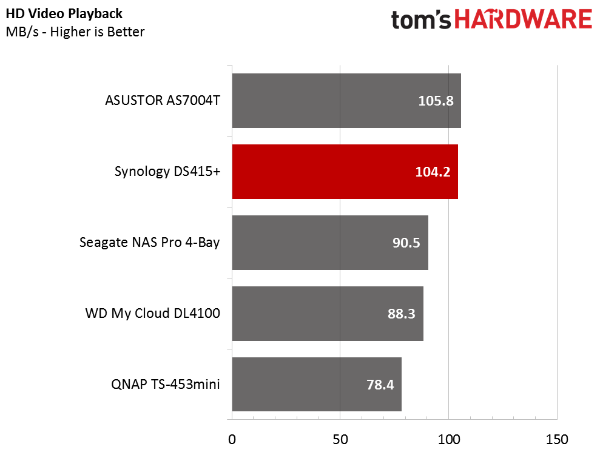
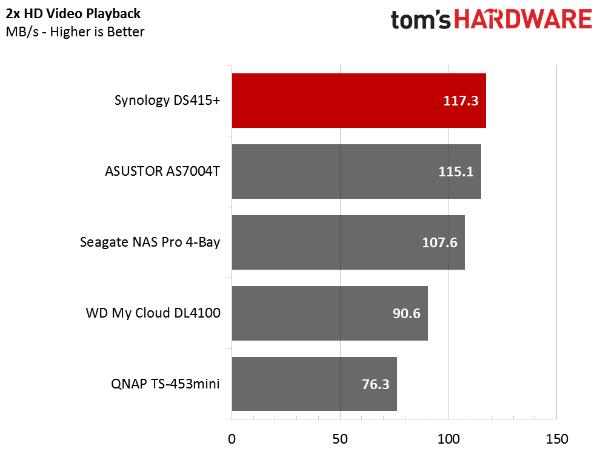
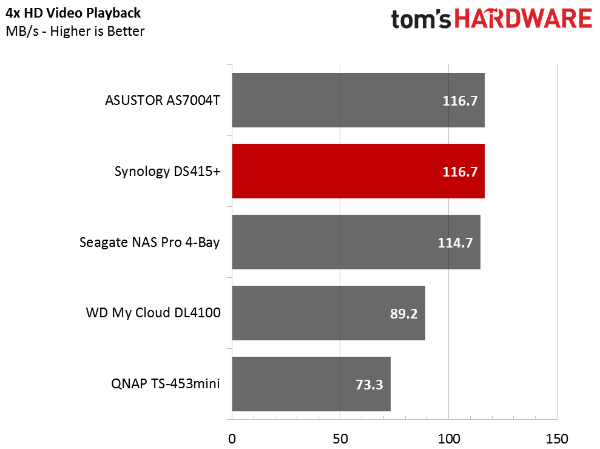
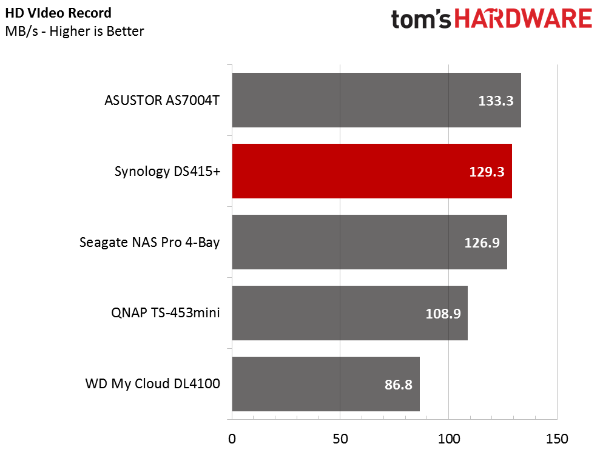
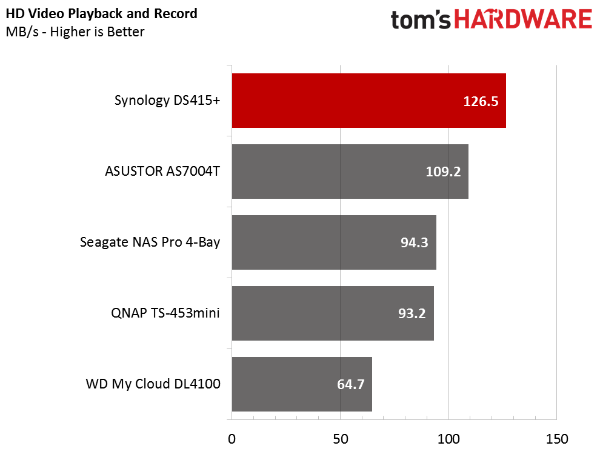
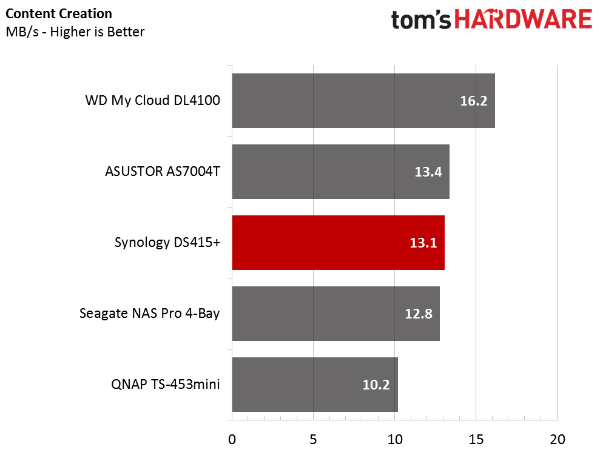
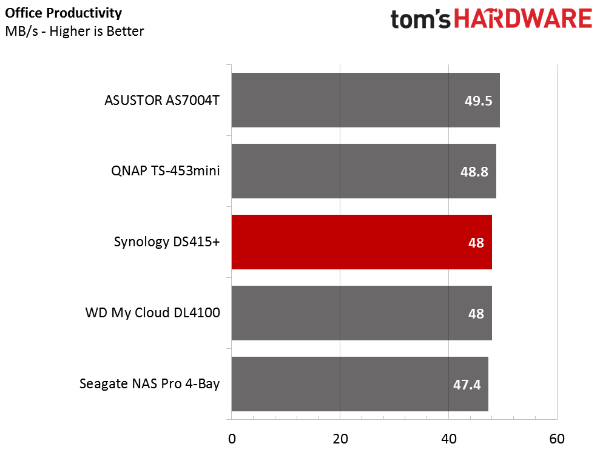
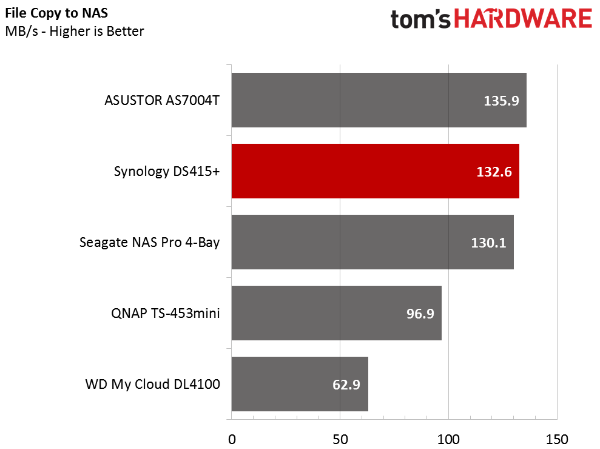
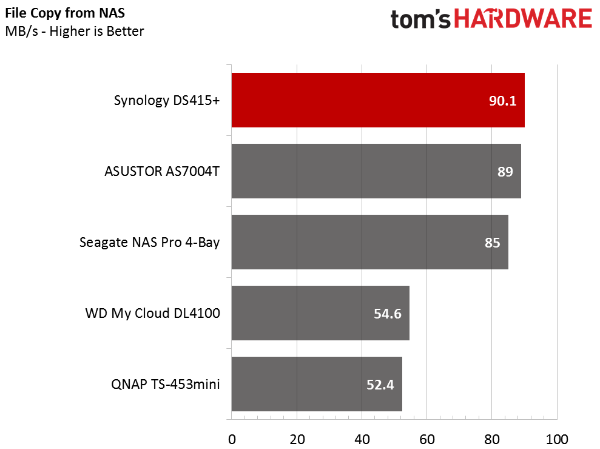
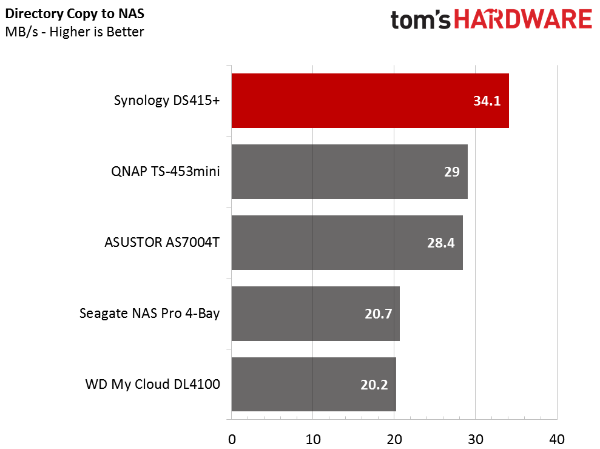
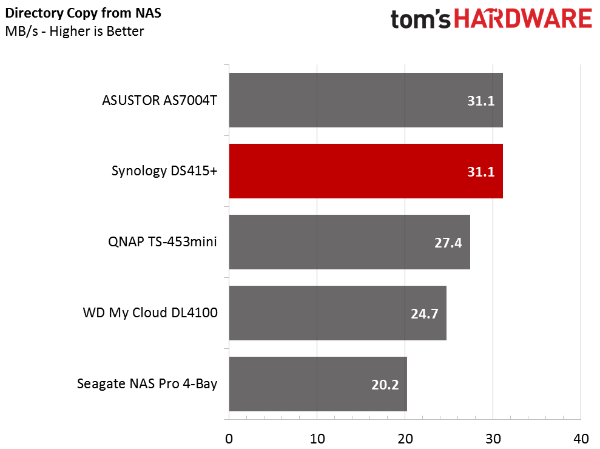
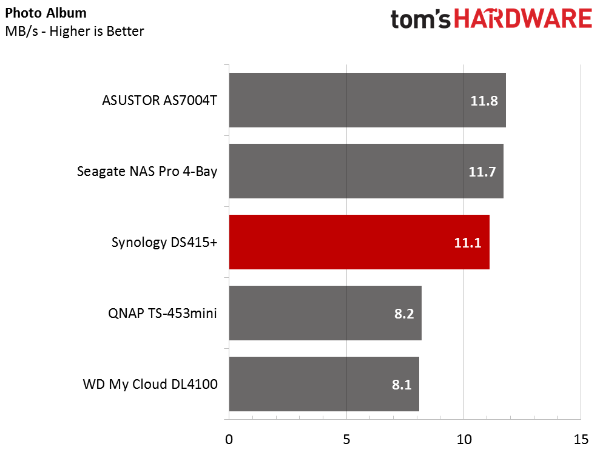
The real-world NAS workload tests over SMB agree with our synthetic benchmark results. Synology's DS415+ delivers respectable performance. In a few metrics, it even outperforms the Asustor AS7004T, which costs nearly twice as much.
The DS415+ is also really well-balanced, with only a slight deviation between its read and write numbers.
iSCSI Desktop Workloads
Microsoft introduced iSCSI support in Windows 2000, but the feature didn't take off in home or small office environments until small SSDs became affordable. Desktop enthusiasts can use the technology to run Windows and a handful of applications from local storage, and then install less critical apps to the NAS. iSCSI gives the host PC a drive letter for a volume of storage on the networked appliance.
In the office, system administrators can use iSCSI to centralize data. Keeping all of the important files locked away ensures the right users get the information appropriate to them.
With all of our time-based results calculated and converted to throughput, we see where the systems land. Synology's DS415+ falls right in the middle, and doesn't trail QNAP's TS-453mini by much at all.
Multi-Client Testing
The multi-client test moves us away from the Quanta CiB setup and over to 10 dual-Xeon servers loaded with a pair of Hotlava Shasta NICs, each of which supplies 12 gigabit Ethernet ports per server. Through the magic of Hyper-V, each server mimics 12 office-class desktops that run workload scripts with real Microsoft Office software applications on the device being tested.
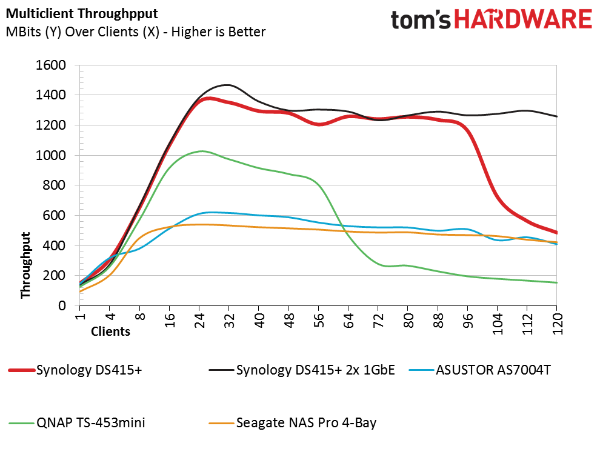
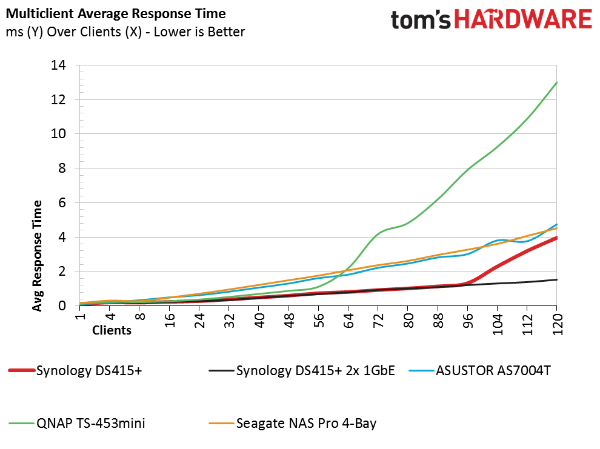
Synology's DS415+ makes it through our multi-client test in good shape. Its throughput drops off at 96 clients, and the latency chart shows us why: that's where the system becomes overwhelmed.
Get Tom's Hardware's best news and in-depth reviews, straight to your inbox.
Traditional Server Workloads
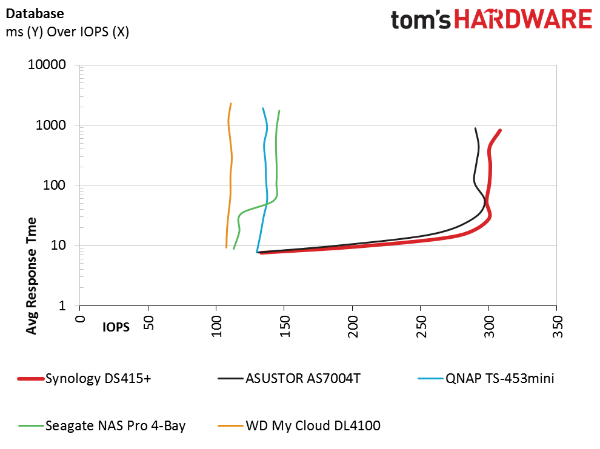
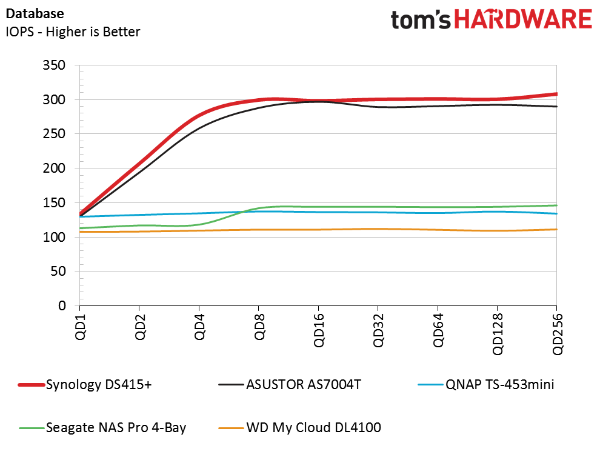
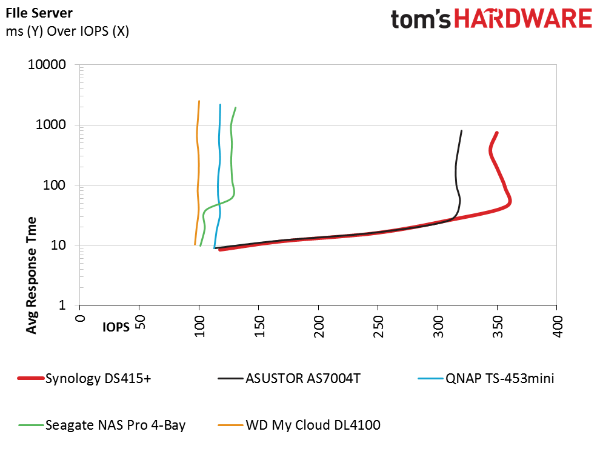
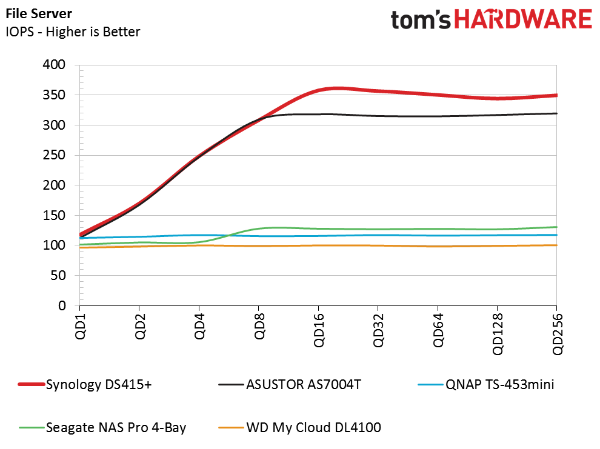
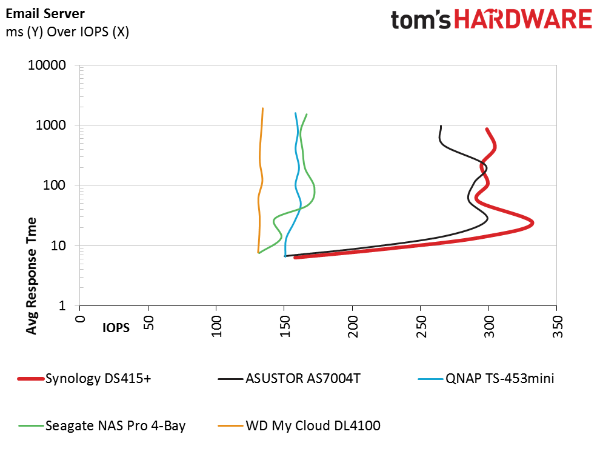
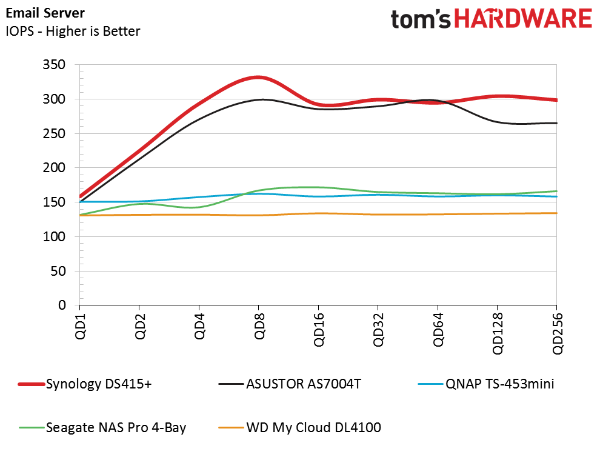
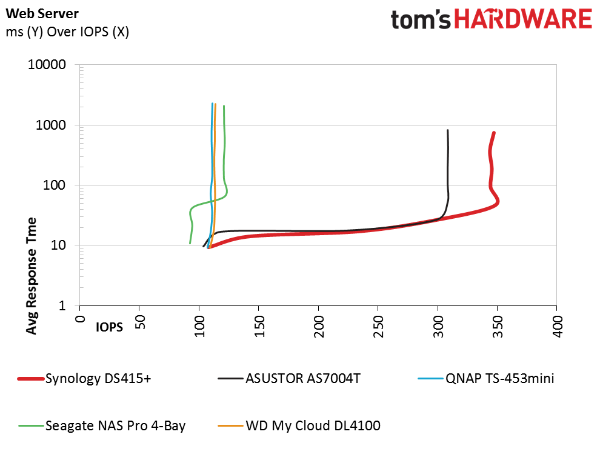
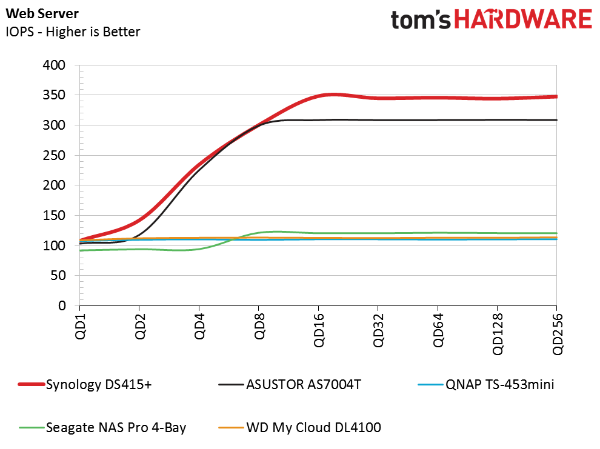
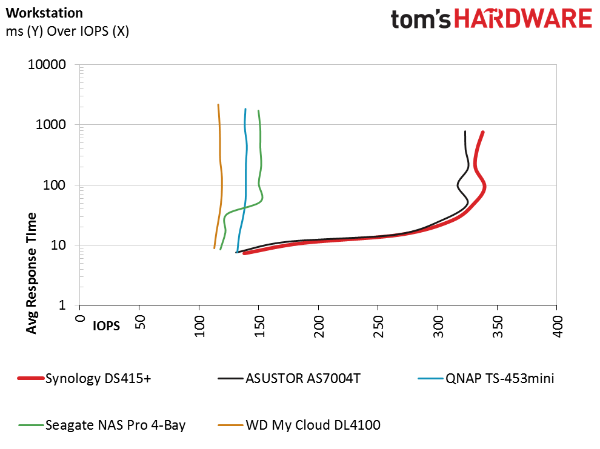
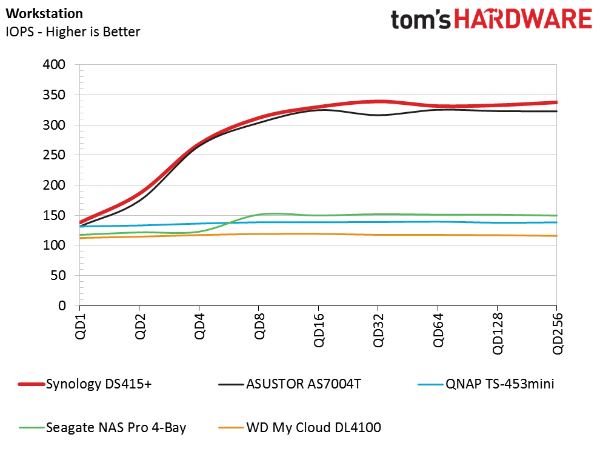
The IOPS scaling we saw in our synthetic tests at increasing queue depths carries over to traditional server workloads. The quad-core Rangeley-based Atom in the DS415+ is older than the Celeron J1900 in QNAP's TS-453mini. But we think the IOPS it adds are worth paying a little more for. Intel's ARK tells us that the Atom costs an extra $20 and consumes five more watts. But if you want to use your system for serious workloads, you know which processor to pick.
Current page: SMB, iSCSI & Standard Server Workloads
Prev Page 4-Corner Testing Next Page Conclusion
Chris Ramseyer was a senior contributing editor for Tom's Hardware. He tested and reviewed consumer storage.
-
Rookie_MIB Nothing wrong with focusing on having an appliance do it's primary task (storage) and do it well. Most people will set up a NAS device and just leave it to do it's job silently in a corner or a closet somewhere for a few years.Reply
As long as it's capable of performing that job, then I would call it a good product. -
BoredSysAdmin I learned from my mistakes, maybe you should learn from my and don't touch synology (especially in business environment) with a ten foot poleReply
http://www.boredsysadmin.com/2015/10/a-bit-of-insight-into-synology-or-why.html -
HideOut WHy wouldnt you just get a buffalo 441e @ under $200. Its not as powerful but for home users you need nothing more. No home user should be spending over $500 on a bare box. Thats nuts.Reply -
milkod2001 ZyXEL NAS540Reply
With 1.2 GHz dual-core CPU and 1 GB of DDR3 RAM, The two Ethernet LAN ports for under €150 would probably piss all over this.
Would love to see this unit reviewed. By specs and price it looks like really good value for average home user.
